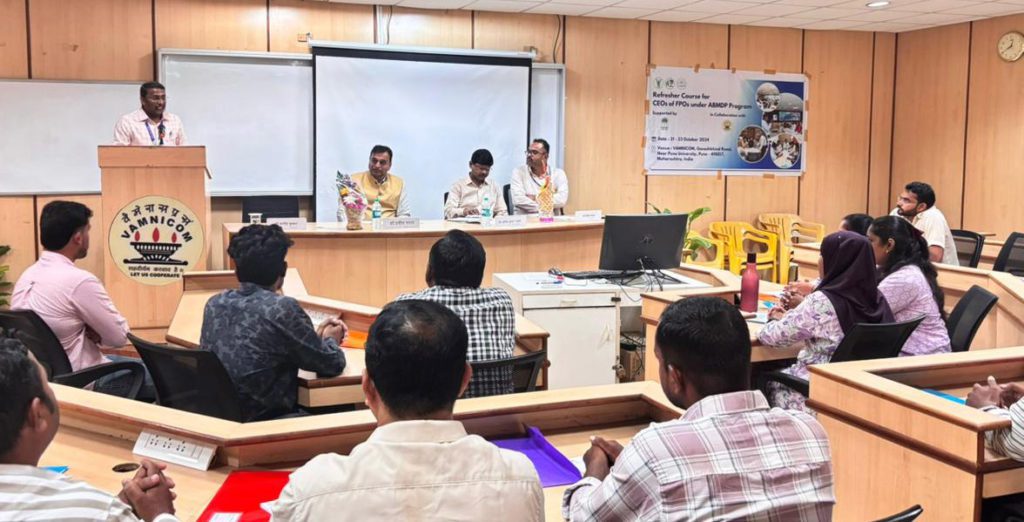A specialized Refresher Course for CEOs of Farmer Producer Organizations (FPOs) in Maharashtra was held from October 21 to 23, 2024, at the VAMNICOM campus in Pune. Organized by a-IDEA, ICAR-NAARM, Hyderabad, in collaboration with VAMNICOM, and supported by NABARD’s Maharashtra Regional Office, the event aimed to strengthen the leadership skills of trained CEOs leading FPOs across the state.
The three-day program focused on addressing practical challenges and bridging knowledge gaps for CEOs who had previously undergone training under NABARD’s Agribusiness Management Development Program (ABMDP).
Sessions covered a wide range of topics critical for FPO sustainability, including community development strategies, financial management, market strategies, and branding techniques.
Experts from ICAR-NAARM, VAMNICOM, NABARD, and various agribusiness startups led technical and interactive sessions to equip the participants with updated knowledge and tools to drive growth within their organizations.
Representatives from the Small Farmers’ Agribusiness Consortium (SFAC), National Rural Livelihood Mission (NRLM), and the Watershed Organisation Trust (WOTR) also contributed their expertise.
A total of 25 CEOs from the districts of Vidarbha, Marathwada, and Konkan participated in the program. Dr. Pradeep Parate, General Manager of NABARD, and Mr. Anil Kumar Rawat, Deputy General Manager, stressed the importance of treating FPOs as viable businesses.
They encouraged the CEOs to adopt proactive leadership approaches, emphasizing the need to understand market dynamics, capitalize on financial management, and enhance member participation.
“FPOs need to identify and tap into potential markets to establish sustainable business models,” Dr. Parate stated, urging the participants to focus on capacity building and financial training for their members to improve the overall competitiveness of their organizations.
The Refresher Course represents a key effort in ensuring that FPOs can continue to provide essential services and improve the livelihoods of small and marginal farmers by leveraging modern agricultural practices, market access, and financial resources.
